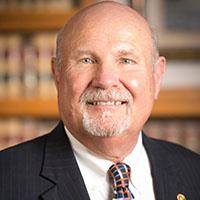Oklahoma City Misdemeanor Lawyer, Oklahoma
Sponsored Law Firm
-
 x
x

Click For More Info:
-
Pritchett Law Group
126 West Needles Avenue Bixby, OK 74008» view mapEstate Law A Focus On Results
Don't wait! Contact us for a free phone consultation. Let us help you figure out what your next best steps are
918-509-3891
Not enough matches for Oklahoma City Misdemeanor lawyer.
Below are all Oklahoma City Criminal lawyers.
Fletcher D Handley
✓ VERIFIEDFletcher Dal Handley, Jr., is a civil justice attorney with The Handley Law Center in Oklahoma. His practice is focused on Personal Injury Law, repres... (more)
Randy Bumgarner
✓ VERIFIED
Stange Law Firm, PC
✓ VERIFIEDGoing through a divorce or family law matter can be an emotional time. You may feel betrayed, lost or overwhelmed. Having an attorney that can relate ... (more)
Bill Molinsky
FREE CONSULTATION
CONTACTGeorge William Velotta
Keith J. Nedwick
FREE CONSULTATION
CONTACTFREE CONSULTATION
CONTACTFREE CONSULTATION
CONTACTFREE CONSULTATION
CONTACT Monty Pritchett Bixby, OK
Monty Pritchett Bixby, OK AboutPritchett Law Group
AboutPritchett Law Group



